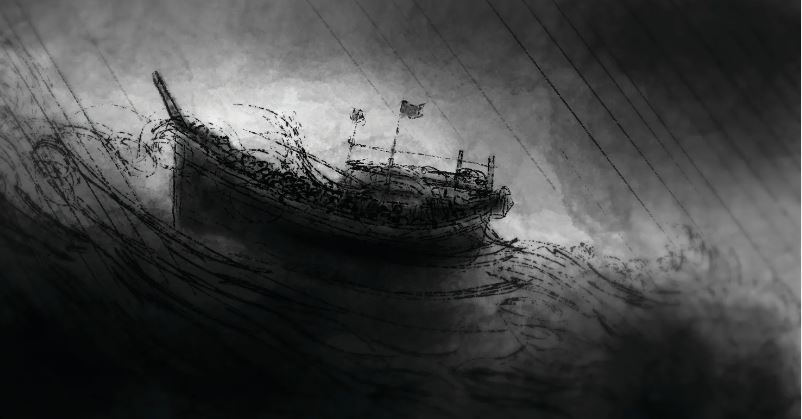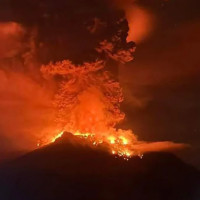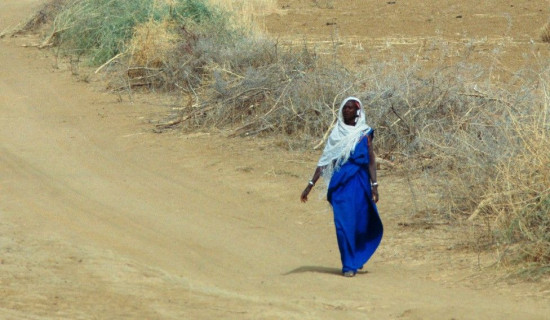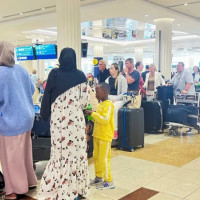- Friday, 19 April 2024
Boat carrying 180 Rohingya refugees vanishes, frantic phone call helped untangle the mystery
Teknaf, Bangladesh, June 7: The wind had whipped the waves to nearly three times the woman's height when her panicked voice crackled over the phone.
“Our boat has sunk!” Setera Begum shouted, as a storm threatened to spill her and around 180 others into the inky black sea south of Bangladesh. “Only half of it is still afloat!”
On the other end of the line, hundreds of miles away in Malaysia, was her husband, Muhammed Rashid, who picked up the phone at 10:59 p.m. his time on Dec. 7, 2022. He had not seen his family in 11 years. And he had only learned days earlier that Setera and two of their daughters had fled surging violence in Bangladesh’s camps for ethnic Rohingya refugees.
Now, Rashid feared, his family’s frantic bid to escape would cost them the very thing they were trying to save — their lives. For despite Setera’s pleas, no help would come, not for her or for the babies, the 3-year-old afraid of the sea or the pregnant women also on board.
Rashid listened to his wife’s terrified voice with growing dread.
“Oh Allah, it’s sunk by the waves!” Setera cried. “It’s sunk by the storm!”
The call disconnected.
Rashid tried to call back. On board the boat, the satellite phone rang. But no one answered.
Rashid tried again. He tried more than 100 times.
The phone rang out.
The Rohingya are a people nobody wants.
This stateless Muslim minority has suffered decades of persecution in their homeland of Myanmar, where they have long been viewed as interlopers by the Buddhist majority. Around one million have fled across the border to Bangladesh, only to find themselves trapped for years in a squalid camp and held hostage by migration policies that have given them almost no way out.
And so, in a bid to get somewhere — anywhere — safe, they are taking to the sea.
It is a life-or-death gamble. Last year, more than 3,500 Rohingya attempted to cross the Bay of Bengal and the Andaman Sea — a 360 percent increase over the previous year, according to United Nations figures that are almost certainly an undercount. At least 348 people died or went missing, the highest death toll since 2014.
It’s impossible to know whether any of those lives could have been saved, because almost no one was looking to save them in the first place. Instead, the Rohingya are often abandoned and left to die on the water, just as on land. Even when officials knew the boats’ locations in recent months, the United Nations’ refugee agency says its repeated pleas to maritime authorities to rescue some of them have gone ignored.
Governments ignore the Rohingya because they can. While multiple international laws mandate the rescue of vessels in distress, enforcement is difficult.
In the past, the region’s coastal nations hunted for boats in trouble — only to push them into other countries’ search and rescue zones, says Chris Lewa, director of the Arakan Project, which monitors the Rohingya crisis. But now, they rarely even bother to look.
The lucky ones are eventually towed to shore in Indonesia by local fishermen. Yet even rescue can be perilous — a Vietnamese oil company saved one boat, then promptly handed the Rohingya over to the same deadly regime in Myanmar from which they’d fled. And the Myanmar authorities themselves patrol for Rohingya migrants.
There is no reason why regional governments could not or cannot coordinate and rescue these boats, says John Quinley, director of human rights group Fortify Rights.
“It was a total lack of political will and extremely heartless,” he says. “The accountability and the onus really lies on everyone.”
Several countries in the region did not immediately respond to requests for comment.
The reasons the Rohingya escape are written on face after gaunt face, in haunted eyes and across slumped shoulders. Any hope that once existed in the Bangladesh camps has long since died, replaced by a stoic sadness and a palpable fear. These are a people who have come to expect nothing, and often get that or worse. (AP)

















